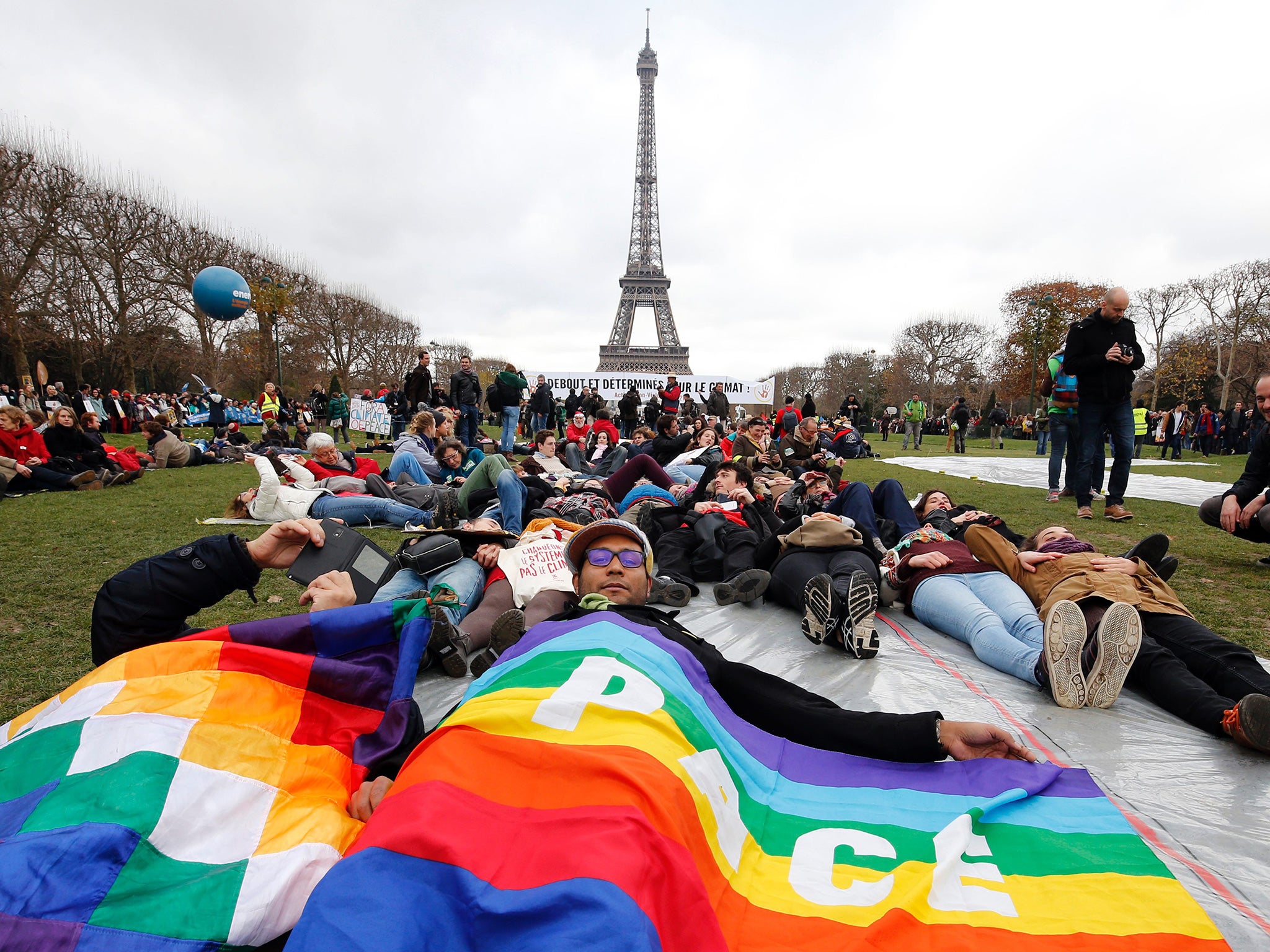Landmark Paris climate change treaty to come into force amid alarm over 'signals from the natural world'
Expert says the 'breakneck speed' at which the Paris deal is being ratified could be because of '16 straight months of record-breaking temperatures'

The Paris climate change deal – hailed as a landmark step in the fight against global warming – is to be ratified by the European Union in a move that will bring the international treaty into force.
EU ministers approved the ratification at an extraordinary meeting of the Environment Council.
The agreement, already ratified by the US and China, the world’s biggest polluters, becomes binding after at least 55 countries who are responsible for 55 per cent of total emissions formally sign up.
Ratification by the EU, which is responsible for 12 per cent of global emissions, would take it over the threshold, allowing the treaty to come into force before the end of this year, some four years earlier than planned.
Concern has been growing over the pace of climate change, with a group of leading climatologists warning this week that the planet could hit 2C of warming – the level at which it is thought the effects will become dangerous – by 2050 or even sooner.
They warned that the measures promised at Paris would not be enough and called for the “doubling or tripling” of efforts.
The EU ministers’ decision is expected to be backed by the European Parliament next week, after which the EU will formally submit its ratification to the United Nations – before individual countries such as the UK have done so.
European Commission President Jean-Claude Juncker said: “I am happy to see that today the member states decided to make history together and bring closer the entry into force of the first-ever universally binding climate change agreement.
“We must and we can hand over to future generations a world that is more stable, a healthier planet, fairer societies and more prosperous economies.
“This is not a dream. This is a reality and it is within our reach. Today we are closer to it.”
Miguel Arias Cañete, EU Commissioner for Climate Action and Energy, admitted that some had doubted the 28-nation bloc would be able to agree to act so quickly.
“Today’s decision shows what Europe is all about: unity and solidarity as member states take a European approach, just as we did in Paris,” he said.
“We are reaching a critical period for decisive climate action. And when the going gets tough, Europe gets going.”

The UK's climate change and industry minister, Nick Hurd, gave the green light to adopting the Paris agreement at the meeting.
“The Paris climate agreement is an ambitious and landmark deal. I welcome today’s agreement, pushing forward EU ratification of the Paris climate change agreement,” he said.
“Following the Prime Minister's announcement last week at UN General Assembly, the UK will complete its domestic approval process by the end of the year.”
Richard Black, director of the Energy and Climate Intelligence Unit (ECIU), said the speed at which the deal was being approved was "truly remarkable".
“It’s striking not only in the context of global climate talks, which for so many years moved at glacial pace – it’s very unusual for Governments to bring any major treaty into force in less than a year,” he said.
“It’s tempting to say that this breakneck speed is the result of signals from the natural world, such as having 16 straight months of record-breaking temperatures and the final refutation of the ‘global warming pause’ narrative.
“But another equally important factor is in many nations, led by China, a clean energy revolution is taking off driven by economics as well as climate concerns – which makes cutting emissions much easier.”
He agreed the pledges made at Paris were not enough to keep global warming well below 2C – the target agreed at the summit.
“But the Paris deal contains measures to ‘ratchet up’ national commitments, and its astoundingly quick entry into force raises the prospects of tighter emission cuts down the line that could yet steer the world away from dangerous climate change, as the majority of citizens globally want,” Mr Black added.
Molly Scott Cato MEP, the Green Party’s spokesperson on EU relations, said the EU had been “crucial for the fight against dangerous climate change”, setting targets that “prevented our Government from totally crushing the renewable energy sector”.
“But as we prepare to leave the EU it is a worrying fact that many of those who campaigned to leave and are now steering our course and are deeply sceptical about climate change and not remotely interested in pushing for a renewable energy transition," she said.
"So it is critical at this time that climate campaigners, those from the renewable energy sector, progressive politicians; indeed, anyone who cares about a safe and secure future, work together. We need to pile pressure on the government to sign the Paris Agreement without further delay.”
Join our commenting forum
Join thought-provoking conversations, follow other Independent readers and see their replies
Comments
Bookmark popover
Removed from bookmarks